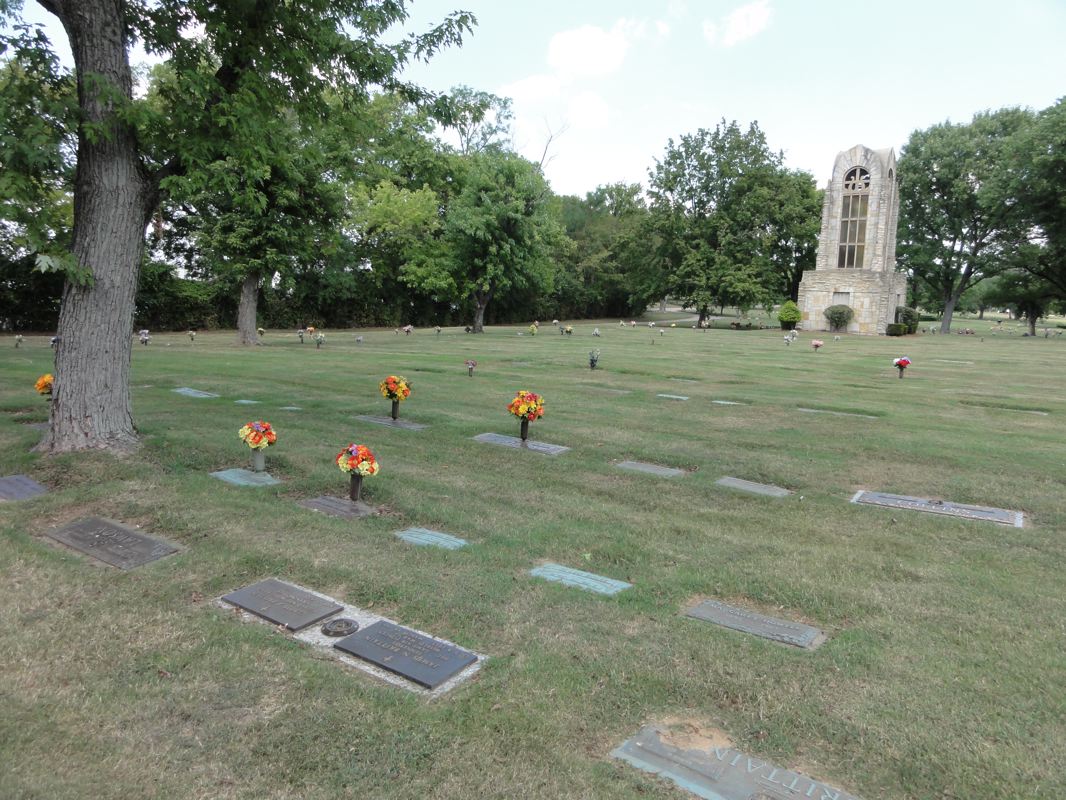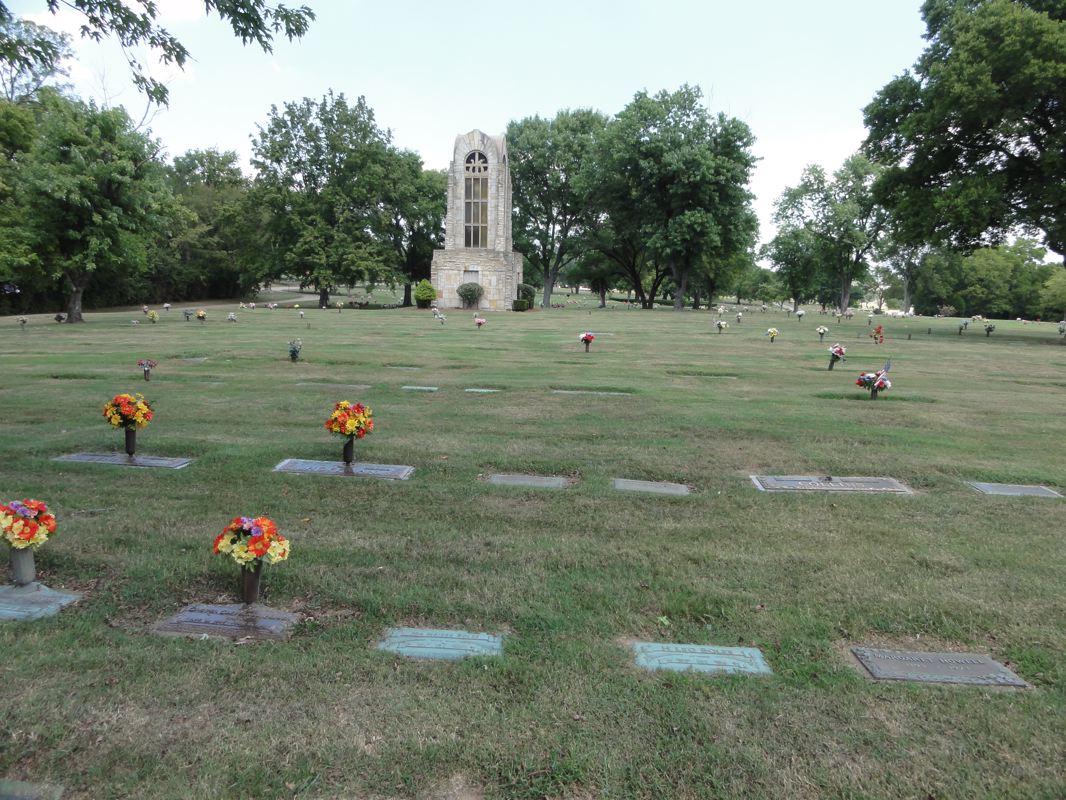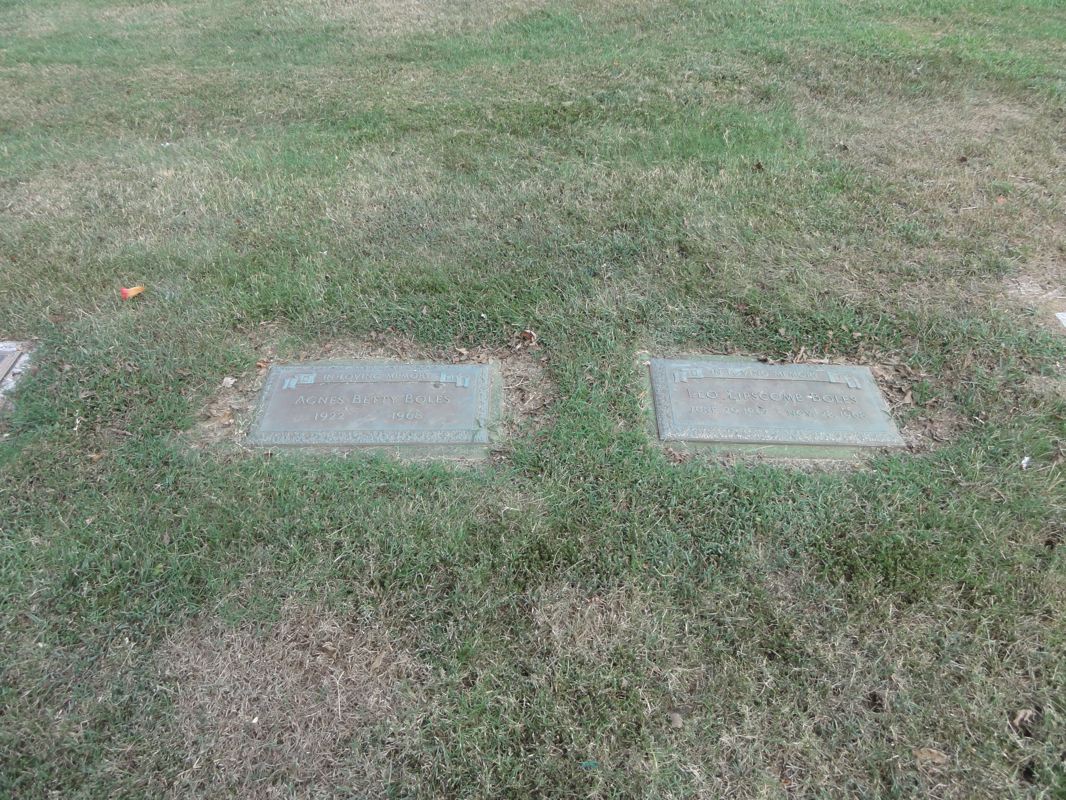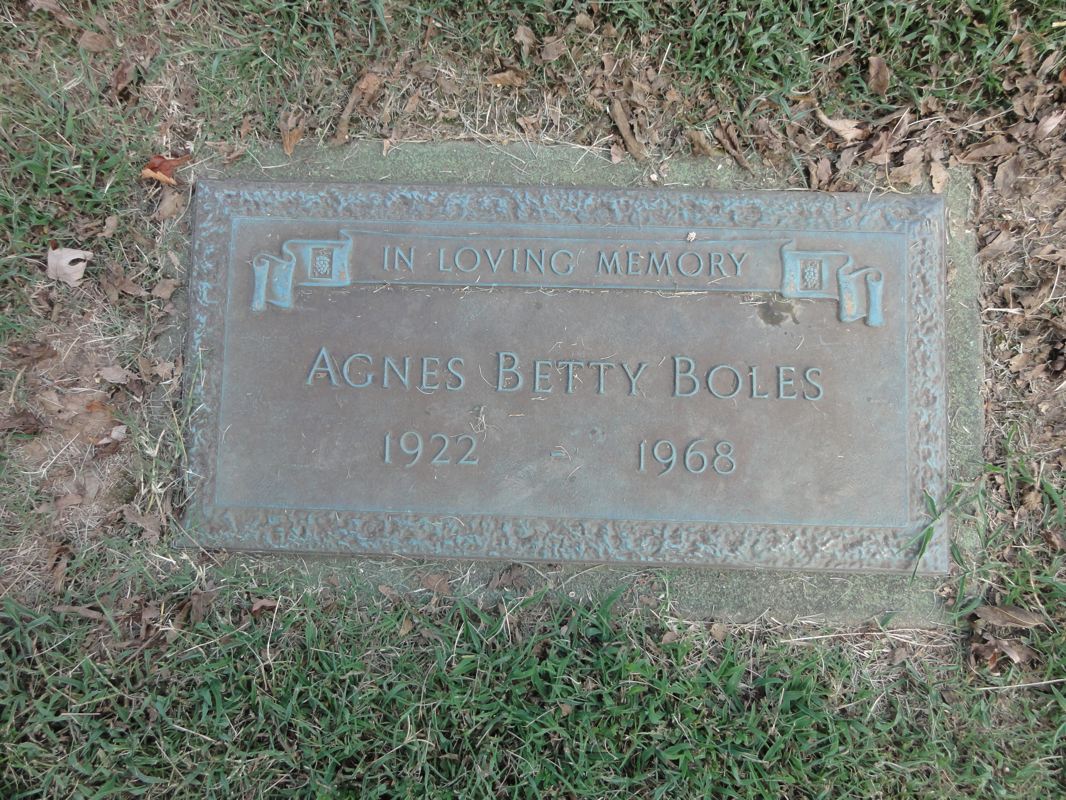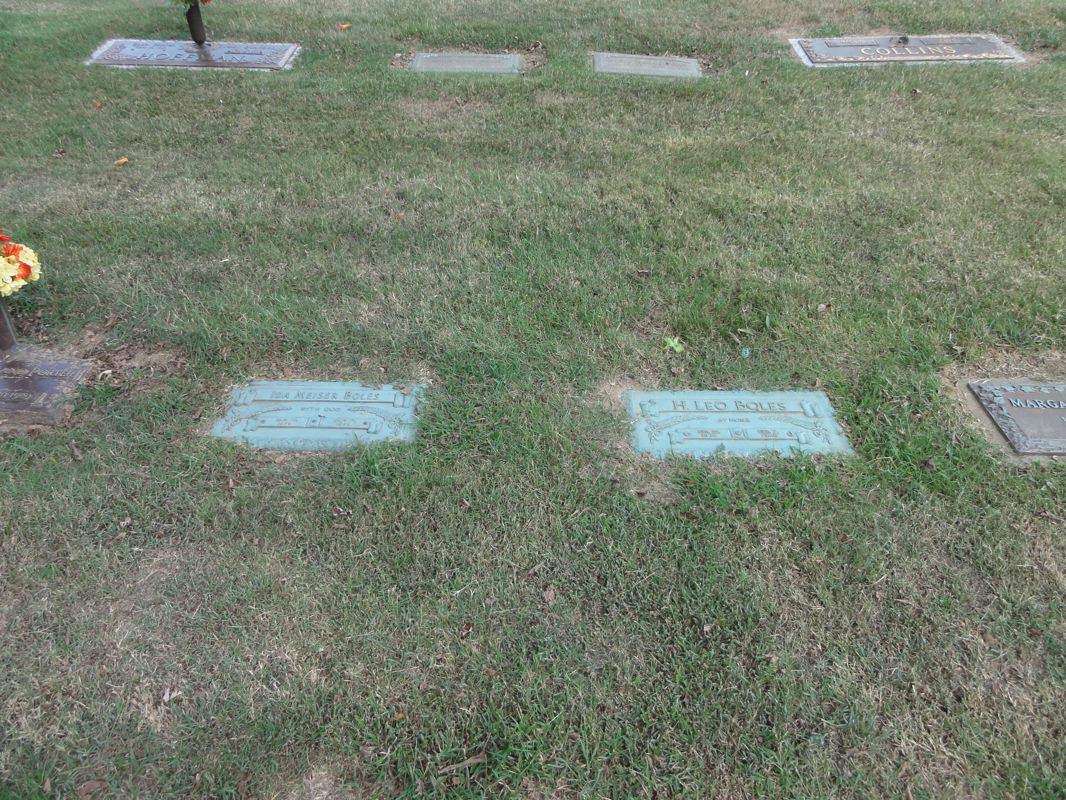Henry Leo Boles
1874-1946
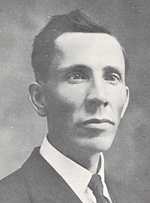
Boles at Age 30
Biographical Sketch On The Life Of H. Leo Boles
Henry Leo Boles was born near Gainesboro in Jackson County. Tennessee, February 22, 1874, and died February 7, 1946. His parents were Jefferson and Sarah Smith Boles. His paternal grandmother was a daughter of "Raccoon" John Smith and his mother was a great niece of Smith. His father and mother, therefore, were distant cousins. His father was a preacher of the gospel and belonged to the sturdy type of gospel preachers who loved the truth and preached it in humility, love and earnestness. His father was married three times and was the father of 18 children. He never saw all his children at home at the same time. H. Leo was the third of six children born to the first marriage.
Boles married Miss Cynthia Cantrell in 1894 when he was 20 years of age. To this union a son, Cleo, was born on July 14. 1895. The young wife and mother lived only four days after the son was born. A sister of Boles took little Cleo and cared for him until his father was in a position to take him.
Henry Leo Boles was baptized by W. T. Kidwill in a meeting at Olive Church of Christ in DeKalb County, Tennessee. September 27, 1895.
Boles married Miss Ida Mae Meiser, of McMinnville, Tennessee, on September 23. 1906. To this marriage one son, Leo Lipscomb, was born. Leo Lipscomb was educated at David Lipscomb College, Vanderbilt University, and George Peabody College. He received his Ph.D. in 1941.
As a student, Boles attended the public schools of White and DeKalb Counties in Tennessee. The school term was only four months each year. In 1892, he entered Shorter College of Mechanicsville. which was located near Short Mountain in Cannon County, Tennessee. This was not a college, as we use the term. but was equivalent to what we would call a high school. He remained there one year. It was here that he made his first public talk in a small debating society. For the next two years, circumstances were such that he had to stay home and work on the farm, except for teaching as an assistant for a few months in the Fall. For this work, he received $8.00 a month. He next entered Dibrell College, which is now Dibrell High School in Warren County, Tennessee. This school furnished him the best educational opportunities he had up to that time.
In January, 1898, he entered Burritt College, Spencer, Tennessee. He graduated from Burritt College on June 3, 1900. After teaching four years in Tennessee and Texas, Boles entered Nashville Bible School on October 12, 1903. From this institution he graduated in the Spring of 1906. He received his M.A. degree from Vanderbilt University in 1920.
H. Leo Boles was preeminently a teacher. In the fall of 1906, he became a member of the faculty of David Lipscomb College (then Nashville Bible School). While doing regular work as teacher, he took lessons daily in the Bible under the lamented David Lipscomb. For seven years he taught philosophy and mathematics but, on becoming president of David Lipscomb College in 1913, he began to give more and more time to teaching the Bible. It was a rare treat to attend his classes in logic, ethics, and evidences of Christianity. He taught his students the Bible-not merely some course related to the book, but the book itself. His students were taught to oppose all modernism, speculation and denominationalism. About 1,500 young preachers received instruction in his classes, besides hundreds of students who never became preachers.
His greatest work was during the years that he served as teacher and president of David Lipscomb College. He was president from 1913 to 1920 and from 1923 to 1932. As teacher, president, and member of the Board of Trustees, he was associated with the college almost a third of a century. When he began preaching, he went out first to the hard places and preached to small congregations. In 1904, he held six meetings with 153 additions and received for the six meetings, $168.63. In 1905, he held 12 meetings with 170 additions and received $229.15. Of course, this was only the beginning.
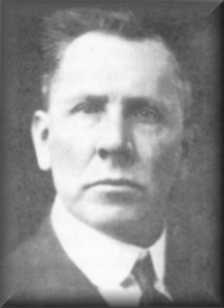
Boles At The Age Of 50
His great ability, sincerity and devotion soon placed him before the largest congregations in the brotherhood. He was a voluminous writer. For almost 40 years, Boles wrote for the Gospel Advocate as contributor, editor and staff writer. He wrote commentaries on the gospel of Matthew, the book of Luke, and the book of Acts. He also wrote a book on the Holy Spirit. He engaged in public discussion on various subjects that faced the brotherhood. The Boles-Boll Debate on premillennialism has proved a source of valuable instruction for those confronted with the issue. He also engaged in the Boles-Clubb discussion which contains a great amount of discussion and information on instrumental music in the worship of the church. He also wrote a book on biographical sketches of gospel preachers and set before the brotherhood many great preachers that we had forgotten through the years. The Gospel Advocate devoted the entire issue of March 28, 1946, in honor of Henry Leo Boles. Seventy writers expressed their gratitude, love and appreciation for this great brother in Christ.
It was in the early morning of February 7, 1946, his wife and Violet were awakened to hear his cry of pain. The doctor was summoned to come to the residence immediately. Nurses came to wait on him and they were joined by close neighbors of the Boles family. An attack of pneumonia had complicated his phlebitis, but he had overcome the pneumonia and was recovering from the other. B. C. Goodpasture and his wife, Cleveland, came over to be with their friend in his dying hours. On Thursday morning of that same day at 10:30 A. M., the soul of Henry Leo Boles took wings.
The funeral services of H. Leo Boles were conducted at the Grace Avenue Church in Nashville, on February 9, 1946, at 10:30 A. M. He had preached his last sermon at the Grace Avenue Church just one month before his death on the subject - "The Unfinished Prayer." For thirty years he had preached at Grace Avenue the first Sunday of every month when he was in the city. He had left a sealed request that his funeral services were to be conducted by N. B. Hardeman, S. H. Hall, and B. C. Goodpasture. The congregational singing was led by Mack Wayne Craig who was then preacher for the Reid Avenue Church and is now Dean of David Lipscomb College.
H. Leo Boles was buried in Woodlawn Memorial Park in Nashville. The simple words 'At Home' mark his last earthly resting place. Sister Ida Meiser Boles outlived her husband by nine years.
-In Memoriam, Gussie Lambert, Shreveport, LA pgs.24-27
![]()
H. Leo Boles: Standing on the Rock
A little more than a century and
a half ago, a group of men separated in place started the movement on the
American frontier to restore New Testament Christianity strictly in the context
of Biblical doctrine. Alexander Campbell became the
leading spokesman for the "Restorers." The disciples of Christ were generally
referred to as the Christian Church, or the "Campbellite" Church.
Alexander Campbell led the church into the mainstream
of "digression" when he was elected in 1849 the first president of the American
Missionary Society. Tolbert Fanning, a young
associate of Alexander Campbell, opposed the "society" from the start, and
withstood Campbell and his associates to their faces. They were in the popular
majority and were successful in neutralizing Fanning's efforts to discredit the
"missionary society" program. Tolbert Fanning was a giant of a man physically
and in his influence on the course of Restoration history. Fanning's great
disciple, just after the Civil War, was David Lipscomb at the time when the
Christian Church was moving into the mainstream of nineteenth century
"liberalism."
David Lipscomb joined Tolbert Fanning as co-editor of the Gospel Advocate in 1866. David Lipscomb and his later associates, including such stalwarts as E. G. Sewell, stemmed and stopped the spread of "digression" through the Gospel Advocate, the Nashville Bible School, and the pulpit. So successful were their efforts that the Church Census for 1906 listed the Disciples of Christ and the Churches of Christ as two separate religious groups.
In 1903, H. Leo Boles came under the influence of David
Lipscomb and inherited Lipscomb's mantle. In time he would be editor of the
Gospel Advocate and would carry forward the life's work of David Lipscomb. Boles
was president of David Lipscomb College. Lipscomb never headed the school he
founded. Because of his life's work and the hard facts of history H. Leo Boles
can be described as the "last of the pioneer preachers," and he stands today as
a restoration giant along with Campbell, Fanning, and Lipscomb. History has been
slow to award these last two men including Bole this honor, but time can not do
otherwise.
The story of the life of H. Leo Boles in the early
years is that of "the short and simple annals of the poor." Boles was born near
Gainesboro Tennessee, February 22, 1874, in the heart of the high Cumberland
plateau. His parental heritage was a great blessing in his life. Boles was the
great grandson of the famed pioneer preacher,"Raccoon"
John Smith. His paternal grandmother was the daughter of John Smith, and his
mother was a great niece of the pioneer preacher.
H. Leo Boles was the son of Henry Jefferson and Sarah Smith Boles. Henry Jefferson Boles was a preacher of the gospel who preached in the mountain areas near his home. Henry Jefferson Boles was married three times and was the father of eighteen children. H. Leo Boles grew up in a "preacher environment" and heard many a story about the immortal "Raccoon" John Smith. The Boles formed a kind of family clan and were deeply devoted and loyal one to another.
Henry Jefferson Boles moved from Jackson County to White County Tennessee, when Leo was five; and ten years later, the family moved to Seven Springs in DeKalb County. Here Boles grew up helping the family make a living on the farm. He married Cynthia Cantrell in 1894-a lovely rural maiden; and lost her a year later in the birth of his firstborn so Cleo. Cleo Boles graduated from David Lipscomb College in 1916, and three years later from the Vanderbilt Dental School. He died May 1922, of tuberculosis at Hohenwald, Tennessee, where he was practicing his profession. H. Leo Boles was next married to Ida Meiser, near McMinnville, Tennessee, on September 23, 1906. One son, Dr. Leo Lipscomb Boles was born to this union and teaches in the public school system of Miami, Florida.
H. Leo Boles got a good "country education" in the public schools of White and DeKalb Counties that only ran three or four months a year. In 1892 he entered a school in Cannon County near Short Mountain. After one year Boles next enrolled in Dibrell College in Warren County, Tennessee. These schools were what we could now describe as secondary schools. Here he took a part in the debating societies and was soon recognized as the ablest debater in the school.
H. Leo Boles next entered Burritt College,the famed
school of the Cumberland Mountains. He graduated in 1900 and taught school for
three years in Tennessee and Texas. He made the fateful decision of his life to
come to Nashville, 1903 and enter the Nashville Bible School to better prepare
himself to preach the gospel. He chose the Nashville school instead of James A. Harding's school in Bowling Green,
Kentucky, because the railroad fare was less from his father's home where the
child, Cleo, was living. What a choice!
H. Leo Boles preached his first sermon, June 7, 1903,
at Stony Point in DeKalb County. He and his father had gone in a buggy the day
before. Henry Jefferson introduced his son who spoke on the subject, "The Human
Side of Salvation." Forty years afterwards H. Leo Boles wrote about that
occasion,"I spoke forty minutes. I was not frightened, but spoke rapidly. I knew
what I was going to say, and I said it."
For seven years he sat daily in the classes of David Lipscomb and heard him teach the same classes. In 1906 H. Leo Boles became a regular member of the Nashville Bible School faculty. In 1913, E. A. Elam resigned the presidency of the Nashville Bible School. David Lipscomb personally chose the young man to head up the school. There were those who thought this man from the Cumberland plateau lacked polish. At the age of seventy-two this polished "granite man" excited the admiration of the entire brotherhood and became their spokesman without portfolio when a great cause needed a champion. He served as president of David Lipscomb College (the new name after David Lipscomb's death in 1917) until 1920. Between classes in David Lipscomb College, Boles attended Vanderbilt University, receiving the M.A. Degree from that institution in 1920. Boles was a preeminently educated man of his day. He returned as president of David Lipscomb College in 1923, and served in that capacity until 1932. He finally left the services of the College in 1934. David Lipscomb made many wise decisions, but he never made a better one than selecting Boles to head up the old Bible School.
Whatever H. Leo Boles was, he was preeminently a teacher in the pulpit, the classroom, the lecture podium, a legion of ADVOCATE articles, religious debates, Sunday school literature, religious books, or in personal conversation. H. Leo Boles was a "many complexed" individual. One would be hard put to say he was a better preacher than a teacher, or whatever he put his hands, heart, and mind to do. He was an incomparable master of whatever he did. He lived and died learning and grew in stature as a gospel preacher. One of his old friends said if he had lived to be as old as Methuselah that he would have been called to hold gospel meetings.
Not since the days of Alexander Campbell has there
lived such a productive and voluminous writer in religious journalism. H. Leo
Boles was a writer of books. He wrote not just to be an author, but knowing that
good books will outlast the eroding rocks of the everlasting hills. Seven
excellent books came from his pen including Commentaries on the Gospels of
Matthew and Luke and Acts.
H. Leo Boles was a leader in the growth of the Sunday
school program among the churches of Christ. He was a member of the
International Council of Religious Education for nineteen years serving as the
representative for the Gospel Advocate Company. At the time of his death Boles
was the only member of the church of Christ to serve in that capacity. He wrote
for many years the Annual Lesson Commentary. It was Boles who advised Leon
McQuiddy to pull the Gospel Advocate Lessons from the International Council.
Boles saw the dangers of "creeping religious
liberalism" in 1939 and warned against it. The Council was being dominated by
men steeped in the current theological rage of the period-Neo-Orthodoxy. It was
through the efforts of H. Leo Boles that the Gospel Advocate Company has devised
and prepared its own lesson materials since 1939. Just as David Lipscomb before
him, H. Leo Boles not only pioneered the Sunday school movement, he led in the
vanguard for better literature and improved programs for teaching it.
The chapters in the life and times of H. Leo Boles are
endless. Any attempt to capture the meaning of his monumental life in a few
words would be as fruitless as trying to put a barrel of water into a thimble,
To the reader who comes to this place in the article, this story is told in I'll
Stand on the Rock: A Biography of H. Leo Boles, co-authored by Leo L. Boles and
this writer. This is more than the life of a man. It is a long chapter in
Restoration History where H. Leo Boles played one of the leading roles. Will you
read it?
Many will remember the golden autumn of H. Leo Boles
when he joined N. B. Hardeman in the 1937 Freed-Hardeman Lectureship Program
that became a star attraction among the preaching brethren until the death of
Boles.
H. Leo Boles was crippled in November 1945 by phlebitis. On the day he planned to go to Freed-Hardeman College for the January lecture in 1946, his physician put him to bed. He never got up. The day before his death, he dictated letters and wrote his last article. H. Leo Boles passed away in the morning of February 6, 1946. His funeral was preached at the Grace Avenue church of Christ by N. B. Hardeman, S. H. Hall, and B. C. Goodpasture. He was laid to rest in Woodlawn Cemetery with the simple words on the bronze name plate, "At Home." Ida Meiser Boles died October 17, 1955, and her funeral was preached in the Reid Avenue church by B. C. Goodpasture, I. C. Finley, and this writer. She was laid by the side of her husband with the engraved words on her name plate, "With God."
"The grand symphony of Boles' life was played out to
the very end. The themes were clear and distinct. With the poised pen or the
lifted Bible on the pulpit platform, the performance was as good as the best."
He too now belongs to the ages that are most certain to treat him kindly.
-J.E. Choate, Gospel Advocate 1967, Feb. 2, 1967 vol. CIX no.5 pages 66, 71,72
![]()
H. Leo Boles
The church of our Lord sustained a very great loss when H. Leo Boles left us and went home to God. I knew Brother Boles through the last eighteen or twenty years of his stay on earth. He stayed in our home at Jasper, Ala., while preaching there in a meeting a few years ago. I have also heard him speak several times daily in the lecture courses conducted at David Lipscomb College and at Freed-Hardeman College since these courses were inaugurated. I have read his articles in the Gospel Advocate since I was a young preacher. I also have his various books and have used his Bible-school commentaries since he began to write them. I reached the conclusion some years ago that Brother Boles was the greatest man known to me in all the brotherhood; I thought of him as the best all-around man among us. He was highly endowed by nature, had a wonderful mind, and was a profound scholar. With his powerful mind he could see through a problem or a proposition, clearly define the issue, and make the truth to shine as bright as day, while others were wasting time with technicalities. His sermons were beautiful and powerful in their simplicity. All could easily understand any argument that he made on any subject. He could state the truth on any question in few words; and when he stated any proposition, he clearly defined the terms used and presented the truth from so many angles that the force of his arguments were irresistible. He was just and fair in dealing with men and issues. He never intentionally misrepresented anyone to obtain the advantage in argument. Like the Master himself and the apostles, Brother Boles was a controversialist. He had deep and abiding convictions, knew what he believed, and why he believed as he did. He could give a reason for the hope that was in him. He was as "bold as a lion" in defense of the truth. He knew the word and will of God, and feared no man who would dare raise his voice against the truth. He loved men, especially his brethren, but he put the truth above all men. Yet he was as humble and gentle as a little child. The light of Christ and his gospel was brightly reflected in the character and life of Brother Boles. I thought of him as being more nearly perfect than any man living.
Upon our arrival at Freed-Hardeman College in January, Flavil Nichols, Pervie Nichols, and the writer sent Brother Boles a telegram, closing with the words: "We love you." No mother ever expressed her love for her darling babe with more tenderness of feeling than the love which started these endearing words unto the bedside of Brother Boles in that telegram. Perhaps he was loved by more people than any man in the church. He was growing old most gracefully. One's life was deeply enriched by hearing him for a single day. I learned many wonderful truths from Brother Boles, but his life did as much, or more, for me than his teaching. His life, though to some extent imperfect, was a living sermon. I shall always feel indebted to Almighty God for the providence which brought his life in touch with mine. At times I could feel myself drinking in his Christ-like spirit.
There are many things in Brother Boles' life which if imitated would bring about a wonderful change in this old world. He was free from prejudice, envy, and jealousy. He loved all faithful gospel preachers, everywhere, and often said, "More power to them!" in the great work, which they were doing. It was his practice never to allow any brother to rise to speak a word in behalf of the truth that he did not first breathe a prayer for him in his efforts to teach the truth. Often the preacher feels that his audience has come as spectators to find fault and to criticize rather than to find strength for the trials ahead. It would give the poor, stumbling, faltering preacher more power to know that his audience is praying for him in his difficult task. We need more piety and goodness in the church. We need more preachers like Brother Boles. He stood foursquare against modernism, denominationalism and all digression from the truth as it is in the New Testament. He was ready to meet any man on earth who would dare to lift his voice against the truth. He was aware of the fact that the truth of God has no voice of its own with which to defend itself when blasphemed, defamed, and cast down as damnable heresy. Hence, like Paul, he was "set for the defense of the gospel." He earnestly contended for the faith once delivered to the saints. Many "isms" and theories arose to challenge the truth, but he was never carried away with any of them. He was no hobby rider nor fanatic. He never caused trouble in the church by speculating and theorizing. I went to see him a few days before his passing, and he referred to a certain brother of fine ability as a hobby rider, because he was teaching a new "ism" to the disturbance of the peace and harmony among brethren.
Brother Boles was like Paul in that he labored more abundantly than the rest of us. He did an enormous amount of work in his day. He was "always abounding in the work of the Lord." But his work on earth is done, and his works will follow him, for he died in the Lord. Brethren, let us imitate all the good in his life and stand for the truth, which was dearer to his heart than all earthly things combined. Let others rise up and qualify to take his place. Let us cherish his memory, perpetuate his work, and so live that we may meet him and all the faithful on that golden shore where sorrow and pain can never come. Let us be ready unto every good work, lest we lose what Brother Boles won for the cause at great cost and sacrifice. Thank God for such a man and what he meant to me!
-Gus Nichols, Gospel Advocate, March 28, 1946, p.306,307
![]()
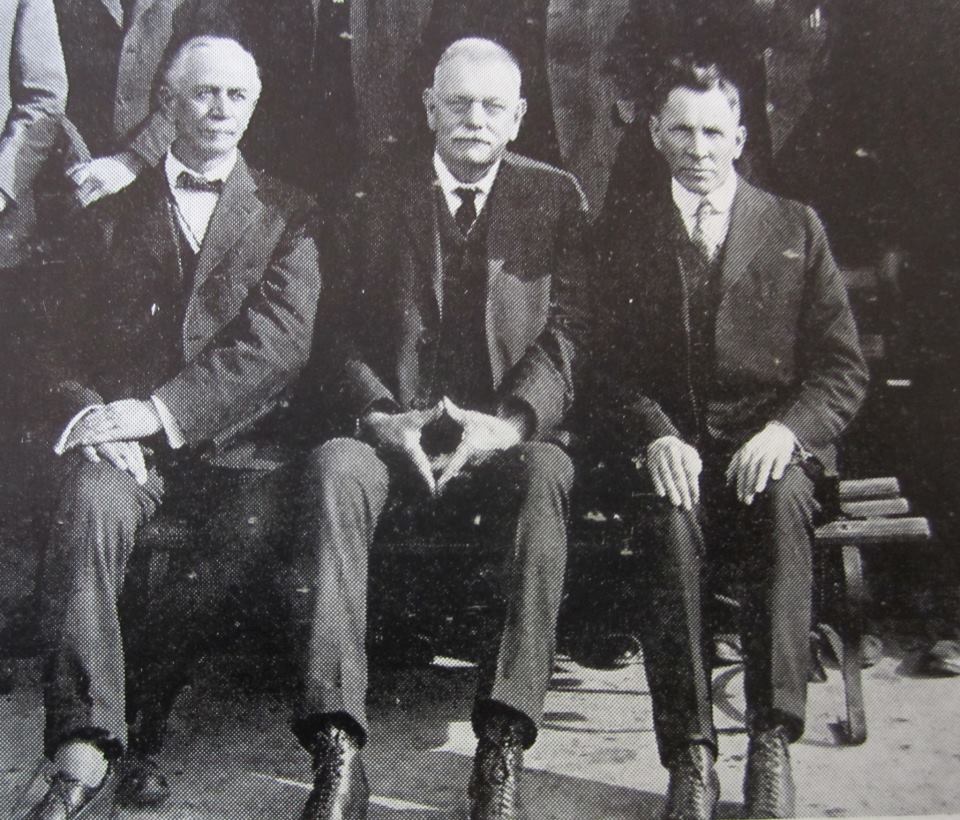
A.G. Freed, E.A. Elam, H. Leo Boles
![]()
![]()
Marriage, Divorce, & Remarriage - H. Leo Boles
![]()
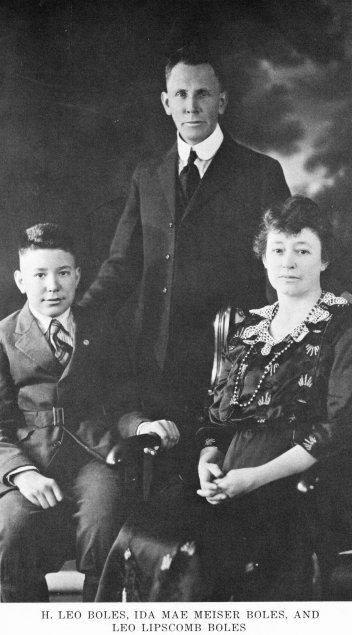
![]()
Chronology On The Life Of H. Leo Boles
Year
Month
Event
1784
October 15
Raccoon John Smith Born, October 15
1812
Jenny (sometimes called Jane) Smith is born (mother of H.J. Boles & grandmother of H. Leo Boles)
1845
November 19
Henry Jefferson Boles born, Caldwell County, KY
1870
Marriage of Jeff Boles and Sarah Smith (a grand-niece of John Smith) Moved to Jackson County, Tennessee
1874
February 22
Henry Leo Boles born at Flynn's Creek in Jackson County
1878
Sarah Boles died. Jeff Boles marries Alcie Brown
1879
Jeff Boles traded farm, moved to White, Co., Tenn.
1880
Henry Leo entered Cherry Creek School
1885
Alcie Bole's died of pneumonia.
1887
Jeff Boles married Odina Golden
1889
Sold farm in White Co. and moved to Sink Creek in DeKalb Co., Tenn.
1891
Jeff Boles Temporarily lost sight for two years
1892
Henry Leo and Smith Boles enter Center College in Cannon Co., Tenn.
1893
Henry Leo hired as assistant teacher to Professor Potter at the Bildad public school.
1894
February 10
H. Leo married Cynthia Cantrell
September 27
Cynthia baptized into Christ
1895
Worked farm in Bear Branch
July 14
Cleo Cantrell Boles born;
Cynthia died
1896
H. Leo entered Dibrell College in Warren, Co., Tenn.
1897
Encouraged by Professor Potter to take the leadership
of a school of his own
1898
Graduated with honors from Dibrell College. Appointed
principal at Green's Cross Roads. Applied for admission
to Burritt College in Spencer, Tenn.
1899
Entered Burritt College.
1900
Received B.A. from Burritt with honors. Taught in Moody, Texas with friend, George Womack
1903
Death of younger brother Roscoe. George Womack has pneumonia. Decided to preach. Preached first sermon. Decided to attend Bible College, chooses Nashville Bible School. Began to write occasionally for the Gospel Advocate
1904
Summer tent meetings. Appointed assistant teacher of
mathematics at Nashville Bible School
1905
Tent meetings with Tom C. Fox. Engaged to marry Ida Meiser
1906
Spring
HLB graduates from Nashville Bible School, Begins teaching regularly for the college.
H. Leo becomes seriously ill with typhoid fever.
September 23rd
Married Ida Meiser
Hired as Full-time teacher by David Lipscomb. Debate at Hickory Grove, Tenn.
1907
June 29
Leo Lipscomb Boles born
1908
Debate with W.J. Watson
1909-1912
Preaching and teaching; Organized many congregations
1913
Appointed president of Nashville Bible School upon resignation of E.A. Elam
1916
Fund raising for school. School grew rapidly
1917
Cleo Boles, H. Leo's eldest son, graduated from Nashville Bible School. Death of David Lipscomb. H. Leo elected to the Board of Directors
1918
Nashville Bible School now David Lipscomb College
1920
Added to the staff of writers for the Gospel Advocate / Resigns as Lipscomb president / Graduates from Vanderbilt University, M.A.
1922
Normal writing for GA and twenty-five editorials / Cleo died of TB. First Hardeman Tabernacle Sermons
1923
Re-elected president of David Lipscomb College
1925
Takes "Query Dept." from E.A. Elam
1926
Boles-Clubb debate on inst. music in G. Advocate
1927
Boll-Boles written debate on Premillennialism in the Gospel Advocate
1928
Began writing Biographical Sketches of Gospel Preachers for the GA. Institution of Lecture program at College
1929
December 3
Lindsay Hall men's dorm. Burned
1930
March 28
Fire in Avalon Home girl's dorm
1931
H. Leo resigned as president of College
1932
Biographical Sketches Of Gospel Preachers published
1933
The Church and Her Ideal Educational Situation published
1936
Commentary on Matthew Published
1939
Persuaded B.C. Goodpasture to serve as editor of GA / Climax of the Unity Movement
1940
Commentary on Luke published
1941
Commentary on Acts published
1942
Book on the Holy Spirit published
1944
Debate with J.M. Hoffman
1945
Lecture program at College
1946
February 7
H. Leo Boles died, Age 72
February 9
Burial at Woodlawn Cemetery, Nashville, Tennessee
![]()
Location Of The Grave Of H. Leo Boles
Woodlawn Memorial Park Cemetery, Nashville, Tennessee, is located behind the 100 Oaks Shopping Center that faces I-65 just south of the I-440 Interchange. From 100 Oaks travel east on Thompson Lane and turn right at the first entrance to Woodlawn's South Side Park (across from main part of cemetery). Continue down the drive. On your left you will pass Resthaven, then Graceland. Continue on past Terrace Garden, continue to the southern end past the Bell Tower around the curve and the Boles family are buried under a tree at the very end of Crystal Lawn. It will be on your left hand side. Facing north the grave plot should be just to the right of a tree. GPS location of the grave is: 36.107393,-86.760008, Accuracy to within 15ft. Graves Facing South.
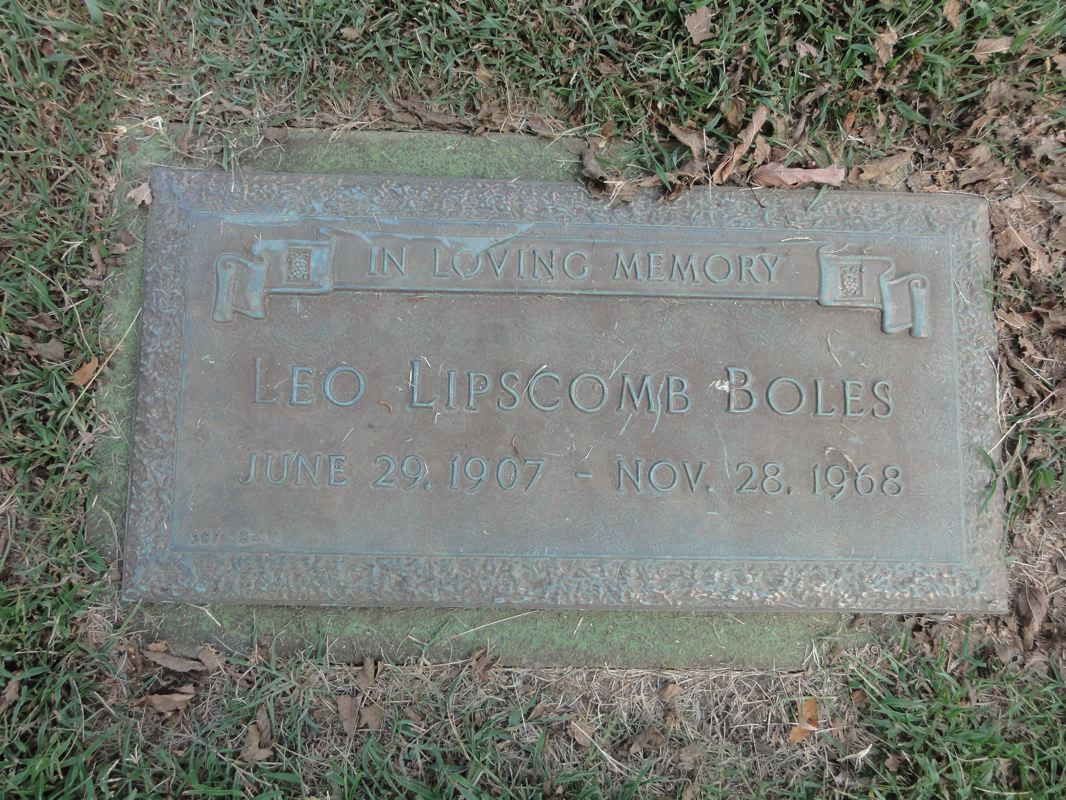
In Loving Memory
Leo Lipscomb Boles
June 29,1907 - November 28, 1968
{Leo Lipscomb & Betty Boles Are Buried In The Same Plot As That Of His
Father & Mother}
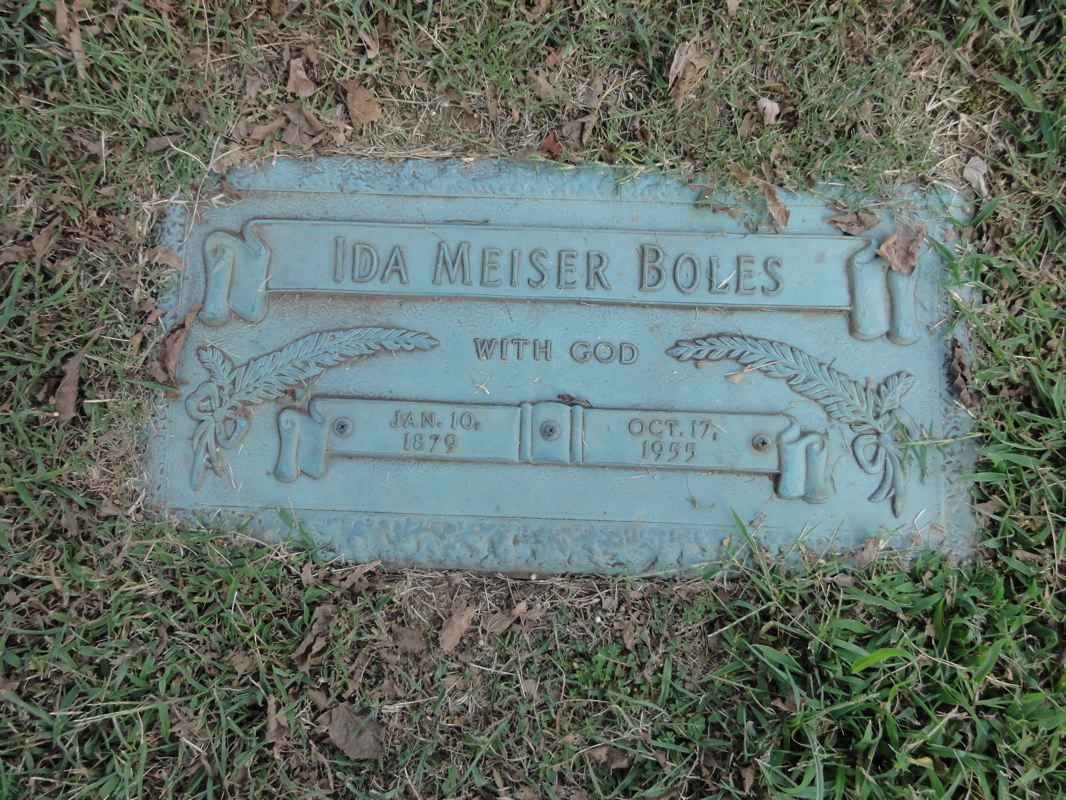
Ida Meiser Boles
With God
January 10, 1879 - October 17, 1955
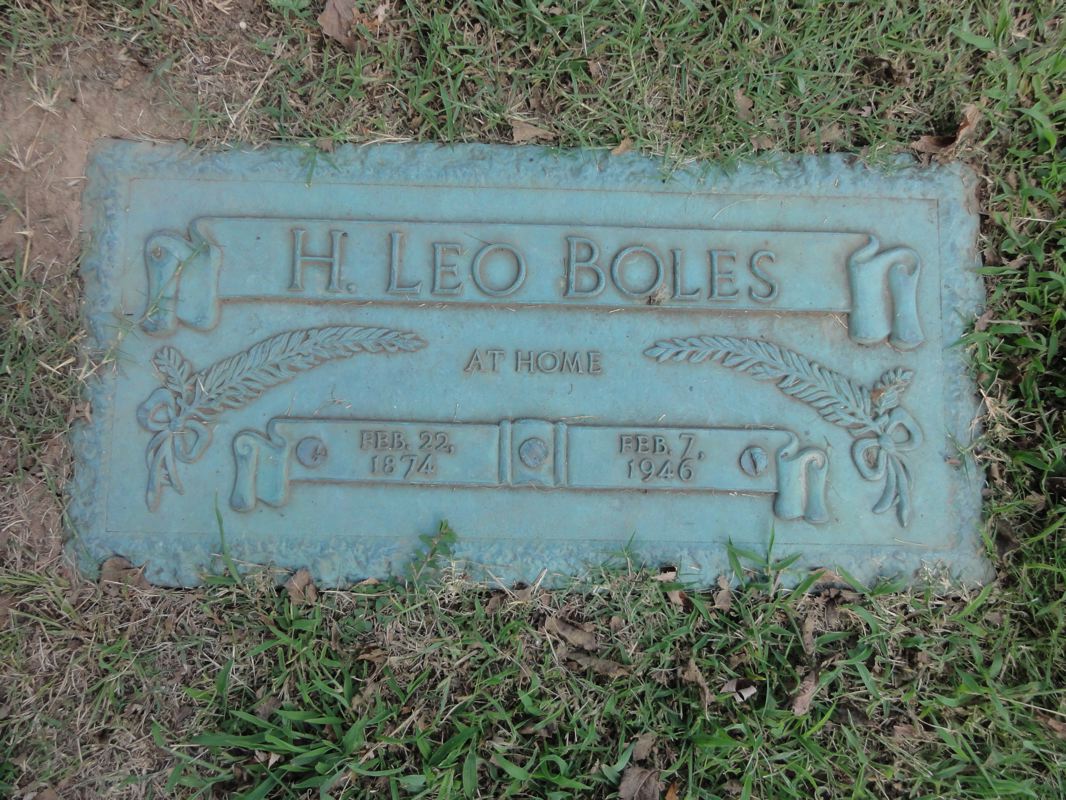
H. Leo Boles
At Home
February 22, 1874 - February 7, 1946
![]()

